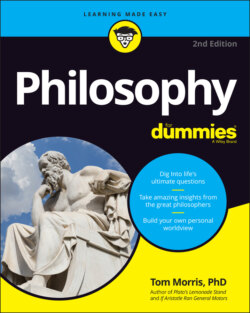Читать книгу Philosophy For Dummies - Tom Morris - Страница 48
The Challenge of Skepticism
ОглавлениеIN THIS CHAPTER
Looking at the ancient challenge of skepticism
Asking some of the deepest questions ever
Understanding when to doubt, and when to doubt our doubts
Discovering one of the most important principles of rationality
Doubt is the vestibule which all must pass, before they can enter into the temple of truth.
— Charles Caleb Colton (1825)
We live in a culture awash in information. We’re drowning in data each day. The media trumpet that, with the advent of modern communications and advanced technology, human knowledge is expanding geometrically faster than at any other period in history. Some say knowledge at least doubles every four years now. Others claim the growth of what we know is even faster.
But the question is whether we really know all that we think we know and whether all this new information really amounts to knowledge or not. You can easily come to wonder if it’s precisely knowledge that is expanding, or just belief, or perhaps mere opinion. The constant and rapid flow of apparent information into our lives may lull us into thinking we have increasingly more knowledge, when actually we may be gaining nothing of the kind. We may not know even a fraction of what we think we know. In this chapter, we look at the most ancient challenge to our claim to have knowledge, and we actually discover from it some deep and important insights we all need.
Since the ancient world, philosophers have cautioned about humankind’s natural tendency to claim knowledge where knowledge, in fact, may not exist. The ancient philosophy of skepticism can help you to understand more deeply what exactly knowledge is, and where it comes from, as well as to answer the open question philosophers have often asked of whether evidence is always required for rational belief, and thus for knowledge.
In this chapter, you will see how the most basic form of skeptical inquiry can give a fresh perspective on the foundations of all human knowledge. You’ll be introduced to some fundamental questions you’ve likely never asked, and in the process of trying to answer them, you’ll discover an overlooked principle of rationality. This just may be the most philosophically challenging chapter in the whole book, but if you can grasp its reasoning and its implications, you’ll see all the other issues of philosophy in a new way. The questions that are raised by skepticism can put everything in a new light, and can inspire you with a needed humility and deeper perspective concerning all claims to knowledge.
